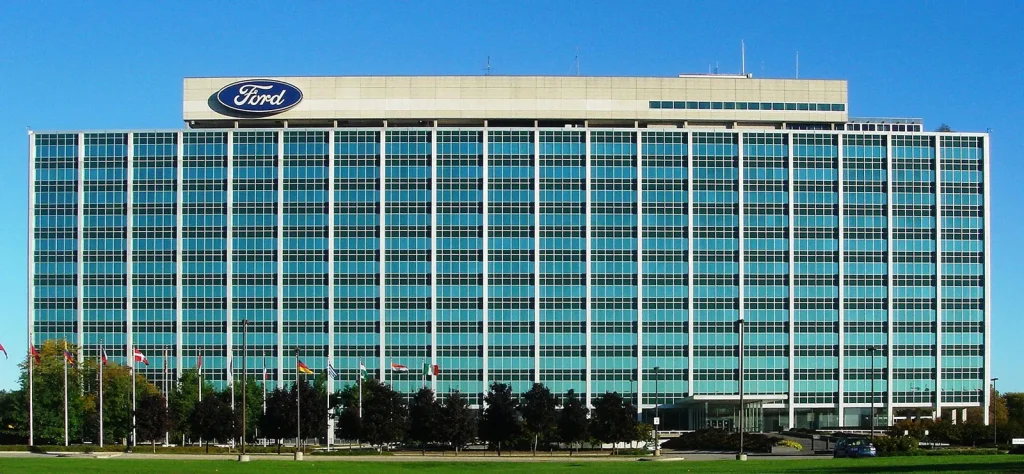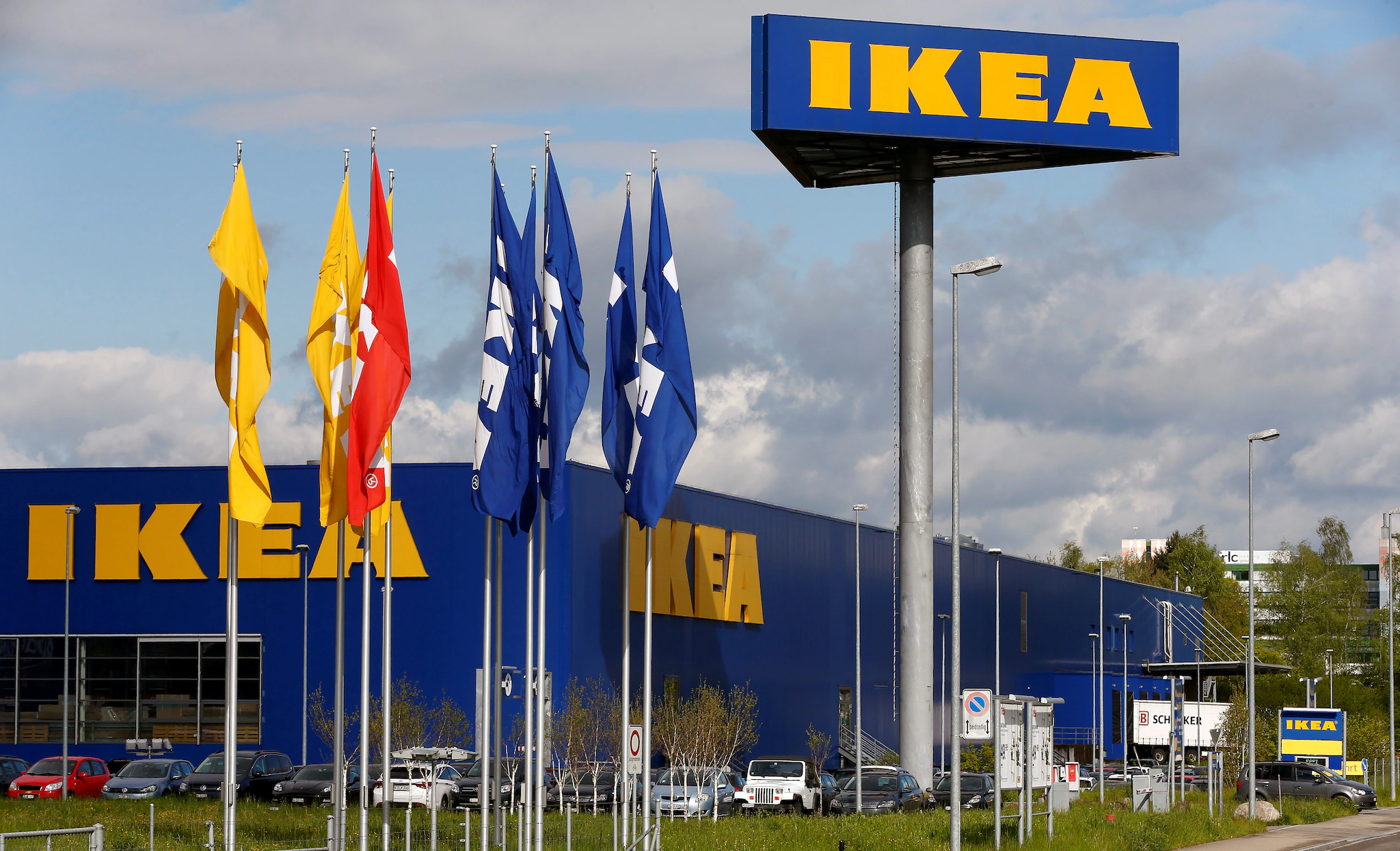
IKEA, the global leader in the furniture and home goods industry, is known not just for its functional and stylish designs but also for its innovative and highly successful franchise system. But how does this massive company maintain its consistent brand while operating in various regions, cultures, and markets? The answer lies in its unique and highly effective franchise system. This article takes an in-depth look at what it’s like to be an IKEA franchisee, how IKEA Al-Homaizi Ltd became one of the pivotal franchisees in the Middle East, and how the brand continues to evolve through partnerships like this one.
We’ll also dive into the franchise system itself—how it works, the challenges faced, the freedom given to franchisees, and what it truly means to be a part of IKEA’s worldwide family. Whether you’re a prospective franchisee, an existing partner, or simply someone curious about the inner workings of a global brand, this article will provide a comprehensive understanding of IKEA’s global franchise network and its ever-evolving journey.
What’s it Like to Be an IKEA Franchisee?
Becoming an IKEA franchisee is a unique journey that offers both autonomy and responsibility. As a franchisee, you become the steward of IKEA’s brand in your region, which means you are expected to uphold the company’s values, maintain high operational standards, and deliver the same customer experience that IKEA is known for worldwide.
The day-to-day responsibilities include overseeing store operations, managing inventory, ensuring staff are trained, ensuring adherence to IKEA’s high standards of customer service, and, of course, implementing marketing strategies that appeal to local tastes and preferences. But what sets an IKEA franchise apart from many others is the unique blend of freedom and structure.
Independence Within a Framework
While IKEA franchisees enjoy a considerable amount of autonomy in terms of local operations, they must follow IKEA’s strict global guidelines to maintain consistency across all stores. This framework covers everything from store design and product offerings to customer service standards and employee training programs. It’s not a “one-size-fits-all” model. Instead, franchisees are encouraged to adapt their approach to meet the unique needs of their region while remaining aligned with IKEA’s core values.
The IKEA franchisee journey is less about following a rigid set of rules and more about building a store that feels connected to the community, while staying true to the IKEA ethos. The franchisee’s job is to ensure that customers in their area get the same high-quality experience they would expect from any IKEA store, whether it’s in Stockholm, Singapore, or Sydney.
How Did IKEA Al-Homaizi Ltd First Become an IKEA Franchisee?
The story of IKEA Al-Homaizi Ltd is a testament to the power of partnerships and shared vision. Founded in 1983, IKEA Al-Homaizi Ltd became the first IKEA franchisee in the Middle East, bringing the iconic Swedish brand to the region. The story of how they became franchisees begins with the Al-Homaizi brothers, whose entrepreneurial spirit and business acumen made them the ideal candidates to represent IKEA in a market that was not yet familiar with the brand.
The Al-Homaizi brothers were already well-established business figures in the region, and their interest in IKEA was piqued by the brand’s unique business model and strong global reputation. They recognized that IKEA’s offering—stylish, functional, and affordable furniture—would resonate with the growing middle class in the Middle East.
In 1983, the partnership between IKEA and Al-Homaizi Ltd was formed, marking the beginning of IKEA’s journey into the Middle Eastern market. At the time, it was a bold move to introduce a European brand into a region where traditional furniture was highly preferred. But the brothers’ vision, combined with IKEA’s strong brand identity and support, made the transition smooth. IKEA’s products quickly gained popularity, thanks to their innovative designs, efficiency, and affordability.
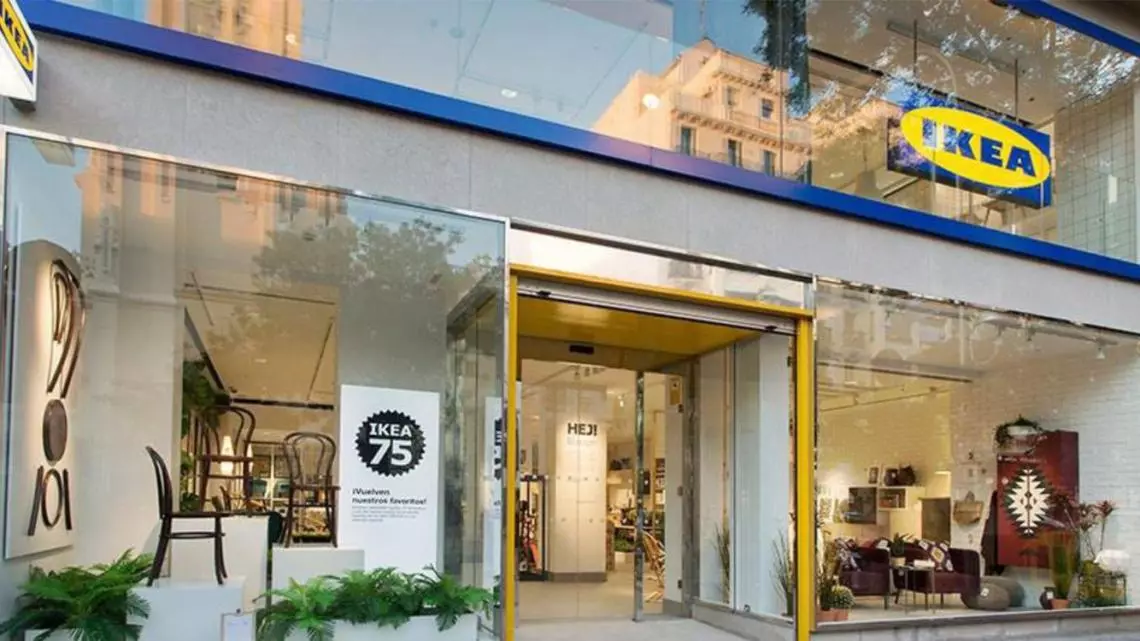
What Triggered the Al-Homaizi Brothers’ Interest in the IKEA Brand?
The Al-Homaizi brothers were driven by a passion for offering consumers high-quality, affordable products, and they found a perfect match in IKEA. They saw IKEA as a brand that revolutionized the furniture industry with its unique approach to design, production, and distribution. The concept of combining sleek, minimalist Scandinavian design with affordable pricing was something the brothers believed would be embraced in their home region.
However, it wasn’t just the products that drew them to IKEA. It was also the brand’s commitment to corporate social responsibility, sustainability, and customer-centric values. The Al-Homaizi brothers were particularly attracted to IKEA’s ability to bring innovative products to the market at an affordable price point, all while maintaining a strong commitment to sustainability—values they aligned with deeply.
Their shared vision for creating a brand that would bring affordable, high-quality home furnishings to the region led them to reach out to IKEA, eventually striking a deal to open the first IKEA store in Kuwait in 1984.
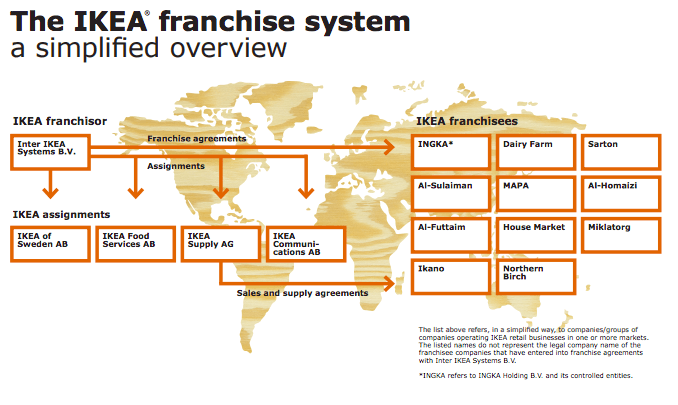
What Is Your Main Task as an IKEA Franchisee?
As an IKEA franchisee, your main task is to deliver the IKEA customer experience in your designated region while ensuring that the company’s core values are upheld. This includes a broad range of responsibilities:
- Operations Management: Overseeing the day-to-day operations of the store, ensuring that it runs smoothly, products are stocked, and customers are well taken care of.
- Customer Service: Maintaining IKEA’s commitment to customer satisfaction, which includes offering high-quality service and fostering a friendly, helpful environment.
- Staff Training: Ensuring that your team is well-trained in IKEA’s customer service standards, product knowledge, and store policies.
- Local Adaptation: While maintaining IKEA’s core values, franchisees must also adapt their business model to meet the specific demands of local markets, whether it’s adjusting the product range, localizing marketing campaigns, or offering region-specific services.
- Financial Management: Managing budgets, sales targets, and profitability, ensuring the store is a financial success while adhering to the overall brand guidelines.
Franchisees are responsible for ensuring that their store maintains IKEA’s high standards for both the customer experience and operational efficiency.
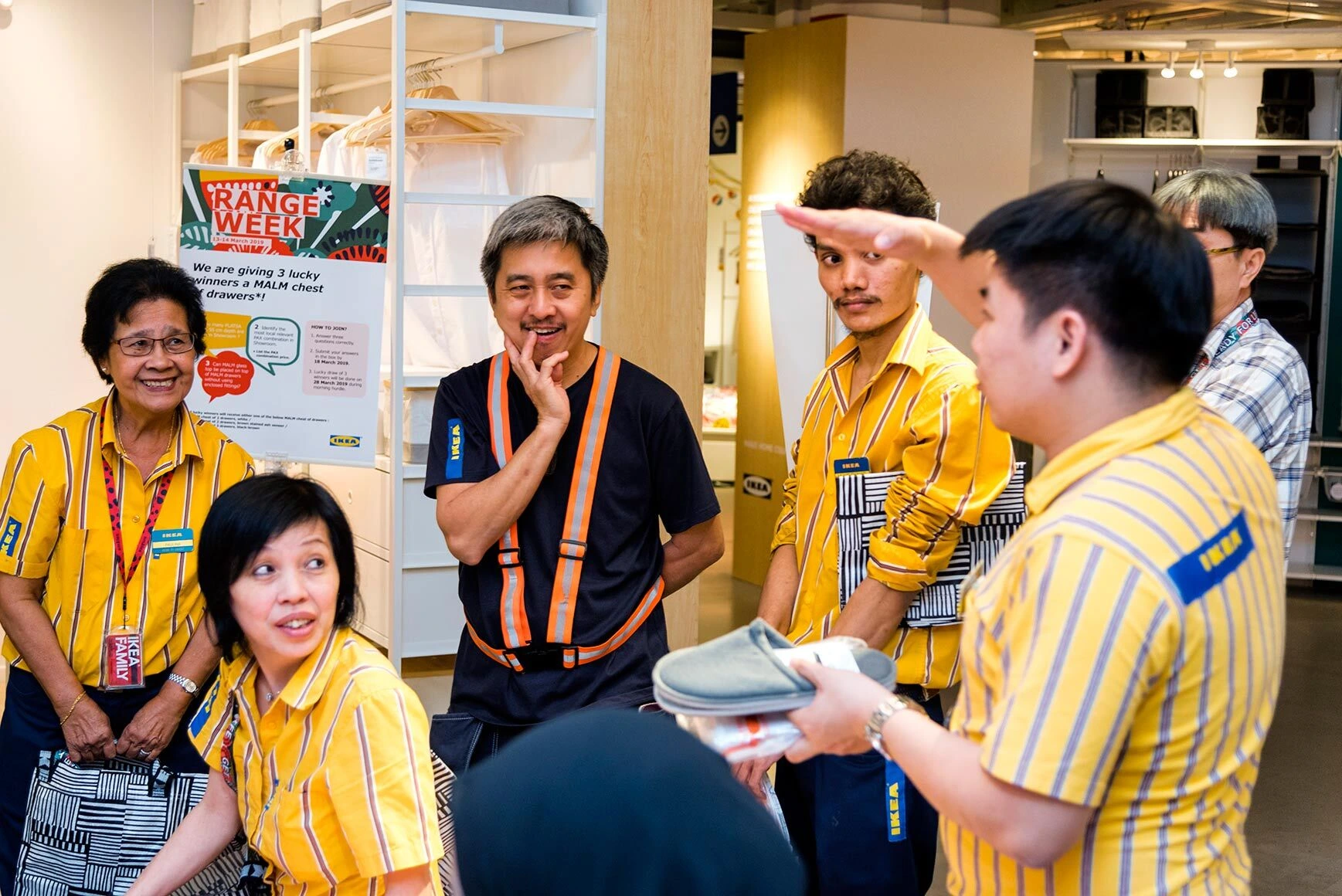
How Much Freedom Do You Have as an IKEA Franchisee?
One of the most appealing aspects of being an IKEA franchisee is the balance between freedom and structure. Franchisees are given a great deal of autonomy in managing their operations, adapting the business to local tastes, and making decisions that best serve their region’s customers.
However, this freedom comes with responsibilities. Franchisees must adhere to strict guidelines set by the IKEA Group, including product offerings, store design, and customer service standards. The structure provided by IKEA ensures consistency across all locations, while still allowing franchisees to have the flexibility to make decisions that align with local consumer demands.
IKEA’s strong franchisee support system helps franchisees in overcoming challenges and navigating the complexities of the local market, while also providing the freedom to make decisions that drive success at the local level.
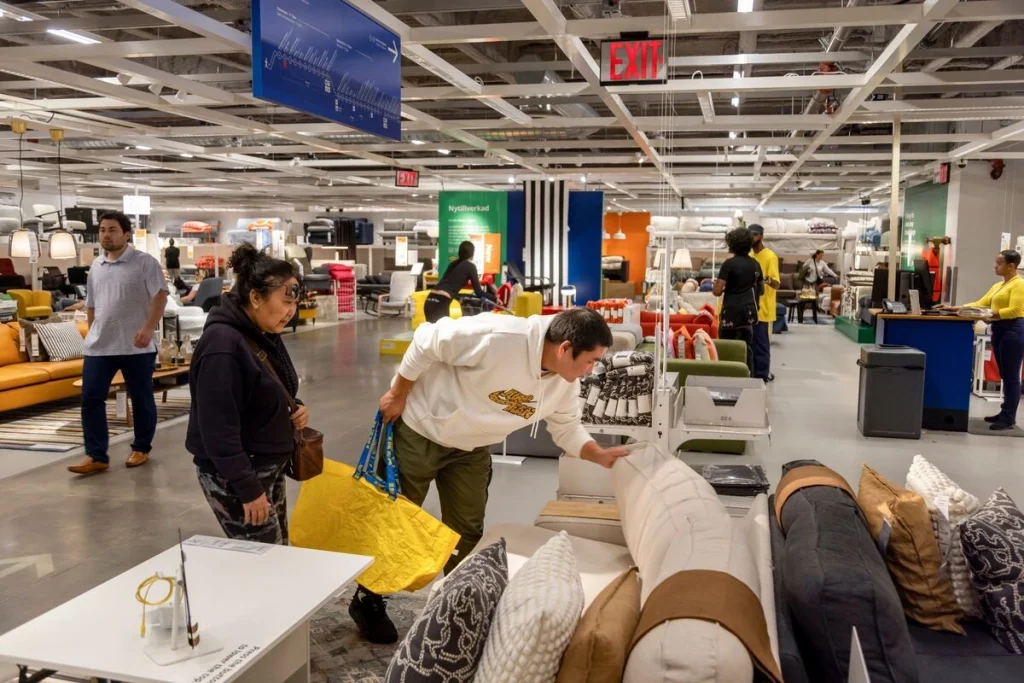
What Are the Main Challenges of Being an IKEA Franchisee?
While being an IKEA franchisee offers many rewards, it also comes with challenges, particularly when it comes to balancing local demands with global brand standards. Some of the main challenges include:
- Adapting to Local Market Needs: Each market has its own unique challenges, from cultural preferences to buying behaviors. Understanding and responding to these preferences while remaining true to the IKEA brand is a constant balancing act.
- Supply Chain Management: Maintaining a consistent supply chain is key to keeping shelves stocked and prices competitive. Managing logistics, particularly in developing markets, can be challenging and requires strategic planning.
- Competition: IKEA operates in markets with fierce competition, from local furniture retailers to other multinational home goods chains. Staying ahead of the competition requires continuous innovation and customer-centric strategies.
- Technology Integration: As the retail world moves increasingly online, IKEA franchisees must stay ahead of technological trends, from e-commerce platforms to in-store tech that enhances the shopping experience.
- Sustainability: Staying true to IKEA’s commitment to sustainability means making eco-friendly choices in packaging, materials, and logistics. This requires continuous investment and innovation.
The IKEA Franchise System: How It Works
The IKEA franchise system is a unique partnership between the IKEA Group and franchisees. Franchisees are granted exclusive rights to operate IKEA stores within their designated region, while IKEA provides comprehensive support, training, and resources to ensure that each store upholds the brand’s global standards.
The system is built around shared values—efficiency, customer satisfaction, sustainability, and affordability. Franchisees benefit from IKEA’s global reach and brand recognition, while IKEA gains valuable insight into regional markets, helping the company stay ahead of consumer trends and preferences.
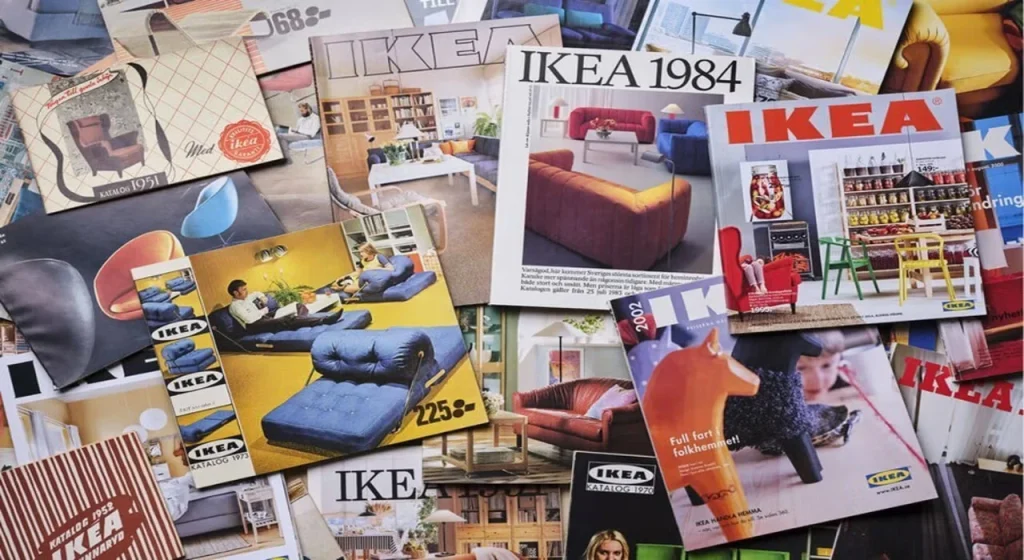
Improving the IKEA Brand and Offer Together
One of the key strengths of the IKEA franchise system is the ability for franchisees and the IKEA Group to collaborate in constantly improving the brand and its offerings. Franchisees are often the first to hear customer feedback, and they have a direct line to IKEA’s global team to communicate local needs and trends.
Through this partnership, IKEA has been able to refine its product offerings, adjust its business model, and introduce new innovations, such as digital tools for customer engagement, environmentally friendly materials, and sustainable production practices.
By working together, IKEA franchisees and the global team continue to push the boundaries of what IKEA can offer, ensuring that it remains the go-to brand for affordable, stylish, and sustainable home furnishings.
Conclusion:
Being an IKEA franchisee is an exciting and rewarding experience. The journey of IKEA Al-Homaizi Ltd exemplifies how a partnership based on shared values, vision, and entrepreneurial spirit can help bring the IKEA brand to new markets. As an IKEA franchisee, you are more than just a business owner—you are part of a global family that works together to create a better everyday life for millions of people around the world.
Through collaboration, adaptation, and a commitment to continuous improvement, IKEA and its franchisees ensure that the brand remains at the forefront of the furniture and home goods industry, making it a great choice for anyone interested in joining the franchise system.


